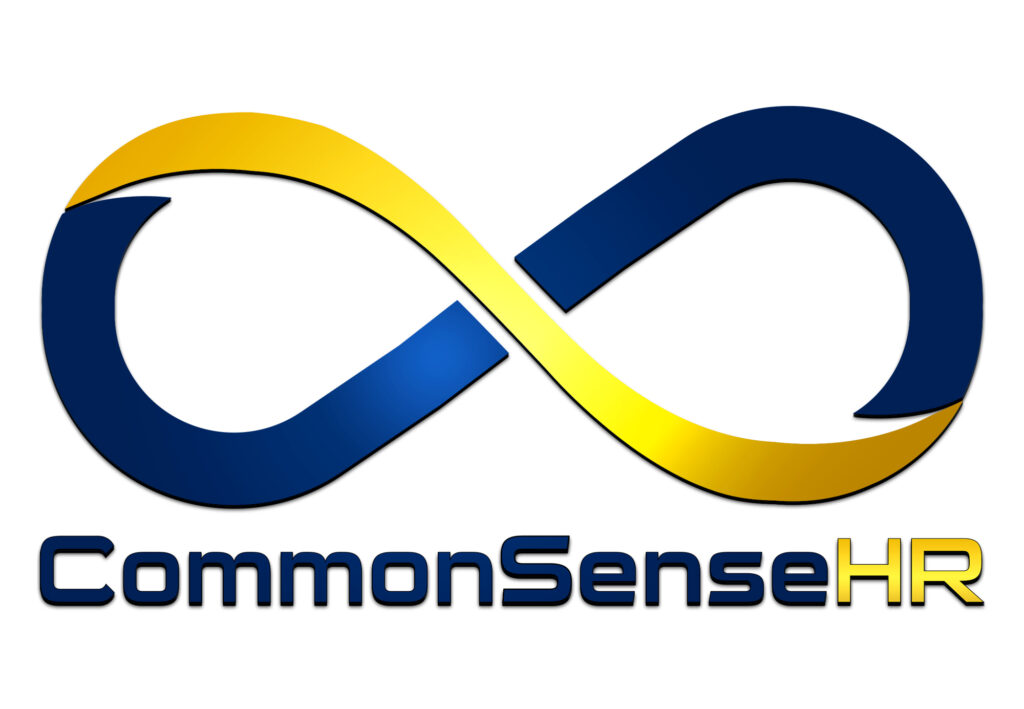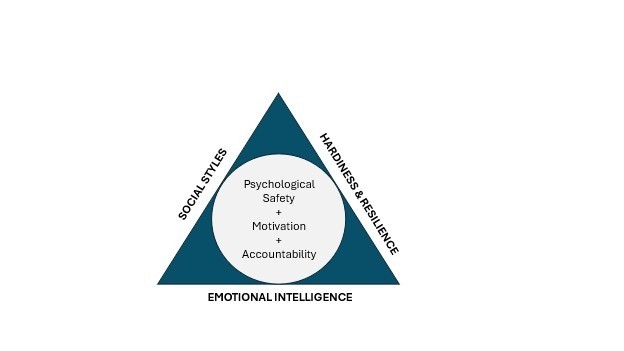Emotional intelligence (EI), understanding Social Styles, and Psychological Hardiness are critical for ensuring psychological safety, motivation, and accountability in the workplace. Each contributes uniquely to creating an environment where employees feel supported, motivated to perform, while being accountable for their work.
EI involves recognizing, understanding, and managing our own emotions, as well as recognizing and influencing the emotions of others.
- Psychological Safety: Leaders with high EI foster open dialogue and trust by recognizing when employees are anxious or defensive, helping to create a space where people feel safe to take risks and share ideas.
- Motivation: EI enables leaders to understand individual motivators, tailoring approaches to inspire employees. Recognizing what drives each person—from personal growth to recognition helps to maintain motivation.
- Accountability: Individuals with high EI take responsibility for their actions and approach accountability with empathy. They model constructive feedback, encouraging others to do the same.
2. Understanding Social Styles
Social styles describe how people interact and communicate, influencing team dynamics and performance.
- Psychological Safety: Understanding social styles allows leaders to communicate in ways that resonate with a person’s work style, thereby reducing misunderstandings and creating an inclusive environment.
- Motivation: People are motivated differently depending on their social style. By adapting their approach, leaders can motivate effectively—whether through being more detail-oriented for analytical types or collaboration for expressive types.
- Accountability: Recognizing social styles helps leaders hold people accountable in ways that resonate with their preferences. The driver is focused on goals and the amiable on relationships.
3. Psychological Hardiness
Psychological hardiness is the ability to cope with stress and adversity with resilience, while maintaining control and commitment despite challenges.
- Psychological Safety: Hardiness helps individuals view challenges as growth opportunities, reducing fear of failure and fostering an environment where risk-taking and learning are encouraged.
- Motivation: Hardy individuals stay focused on their goals even during setbacks. Their resilience inspires others to maintain motivation and continue striving toward their objectives.
- Accountability: Those with psychological hardiness take ownership of their actions, encouraging a culture of personal responsibility and accountability within teams.
3. Psychological Hardiness
- EI + Social Styles: EI helps individuals understand emotions, helping them to adapt communication styles to different social preferences, fostering a psychologically safe environment where people feel heard and supported.
- EI + Psychological Hardiness: High EI helps individuals manage stress with empathy and self-regulation, enhancing resilience. When combined with psychological hardiness, it ensures employees remain committed to their goals despite challenges.
- Social Styles + Psychological Hardiness: Understanding social styles helps create a supportive environment that reduces stress, while psychological hardiness enables individuals to thrive in diverse social settings, improving resilience and collaboration.
In Summary:
- Emotional intelligence helps individuals navigate their emotions and those of others, promoting psychological safety, motivation, and accountability.
- Understanding social styles enables leaders and teams to communicate and motivate effectively, ensuring psychological safety and clear accountability.
- Psychological hardiness offers the resilience needed to face challenges, stay motivated, and take ownership of actions, contributing to a workplace where employees feel safe to grow and take risks.
By integrating EI, Social Styles, and Psychological Hardiness, organizations can cultivate a balanced and productive environment where employees are motivated, feel psychologically safe, and uphold accountability for personal and collective outcomes.


